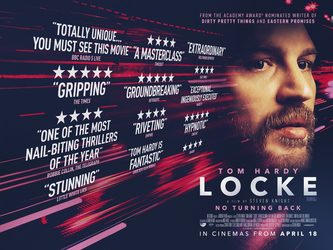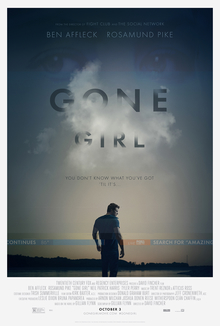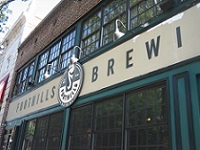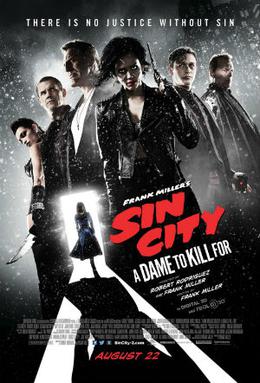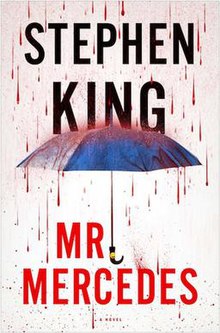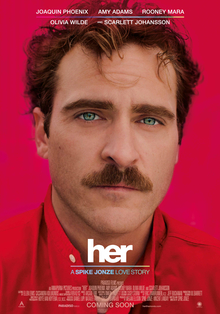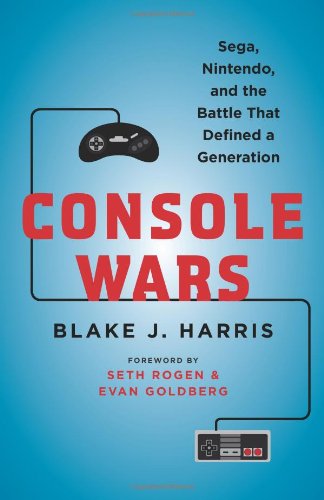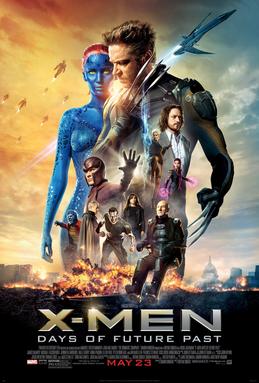In sordid Basin City, corruption and violence are a way of
life. Johnny (Joseph Gordon-Levitt), a hotshot young gambler, rolls into town
to challenge the powerful Senator Roarke (Powers Boothe) in high-stakes poker,
but there is more than money up for grabs for both men. Dwight McCarthy (Josh
Brolin), a repentant private detective looking to leave his old life behind,
gets sucked back in when old flame Ava Lord (Eva Green) seeks his help. He
knows she can only lead to trouble, but he just can’t help himself. Exotic
dancer Nancy Callahan (Jessica Alba) is haunted by memories of Detective
Hartigan (Bruce Willis), who sacrificed himself to keep her safe. Gradually
losing her sanity, Nancy tries to find a way to avenge Hartigan by taking out
the man responsible for his downfall: the untouchable Roarke. In the midst of
all this stands Marv (Mickey Rourke), an unhinged bruiser who helps the
innocent and punishes the guilty in supremely bloody fashion.
In 2005, director Robert Rodriguez staged a coup when he
faithfully – and successfully – translated comic book writer Frank Miller’s paean
to hard-boiled noir to the big screen. After a lengthy nine-year wait, this
continuation continues to remain faithful to Miller’s vision albeit with less
success this time around.
At first glance, the drop-off is puzzling. A Dame to Kill For retains many of the
previous film’s key players (Rourke, Boothe, Alba, Willis, Rosario Dawson, and
others return) with a few substitutions (Brolin for Dwight Owen, Dennis
Haysbert for the late Michael Clark Duncan) and new faces (Green, Gordon
Levitt, Christopher Meloni). It also retains the original’s style and
sensibility, which is to say bleak, ultra-violent, and visually striking. But
what was novel (a pitch-black digital underworld) in 2005 has lost a bit of its
luster in 2014.
Another shortcoming here is the confusing continuity. Like
its predecessor, a Dame to Kill For consists
of loosely connected vignettes (the title story is taken from the comics; the
others are new creations penned by Miller himself) that share characters and
themes. Some are set prior to episodes in the first film while others take
place several years later. Trying to keep up with who is supposed to be dead or
alive or intact or disfigured at any given point becomes a laborious task.
The quality of the episodes themselves varies. In the title
story, Brolin offers a different (re: less cool and composed, more struggling
to keep it together) take on Dwight than Owen albeit not an inferior one.
Williamson lends some more depth to the character Manute, a
hulking-but-eloquent enforcer whereas Meloni’s casting echoes his most famous
television-cop role. Green tries her damndest to pull off a stole femme fatale,
but her French accent is occasionally distracting, and she seems too young to
have such a sordid past. Rumored choices Angelina Jolie and Rachel Weisz may
have fared better here.
Johnny’s tale – “The Long Bad Night” – is probably the
strongest piece here. Gordon-Levitt turns in a strong performance as a cocksure
young man who knows a lot more than he lets on. His antics win the
admiration-turned-loathing of Roarke, which allows Booth to add a veneer of
affability to what was previously a one-dimensionally malevolent character (the
faux-chumminess actually makes him more dastardly). The episode also treats us
to a rare, humorous Christopher Lloyd cameo as a degenerate back-alley doctor.
“Nancy’s Last Dance” features both some of the strongest
acting and weakest plotting of the whole film. Nancy may expose herself for a
living, but she is a complex, tormented character, and Alba shines in plumbing
the depth of her guilt, self-awareness, and suffering. It’s also nice to see
Willis back even if he’s only here for a brief appearance, and Rourke is having
a blast as Marv. But the machinations of Nancy’s revenge are both overly
simplistic (and insulting to her character development), and the hint of the
supernatural the film drops toward the end undermines the payoff.
A Dame to Kill For satisfies on a visceral level with
its stylish brutality, but it still comes across as a missed opportunity. Had
it not taken so long to produce, had more of the original casting choices
worked out, had Miller not entered a period of decline as a writer, this may
have been on par with the original. Instead, it’s a somewhat disappointing –
but still worthwhile – slice of sequeldom.
7.5/10






